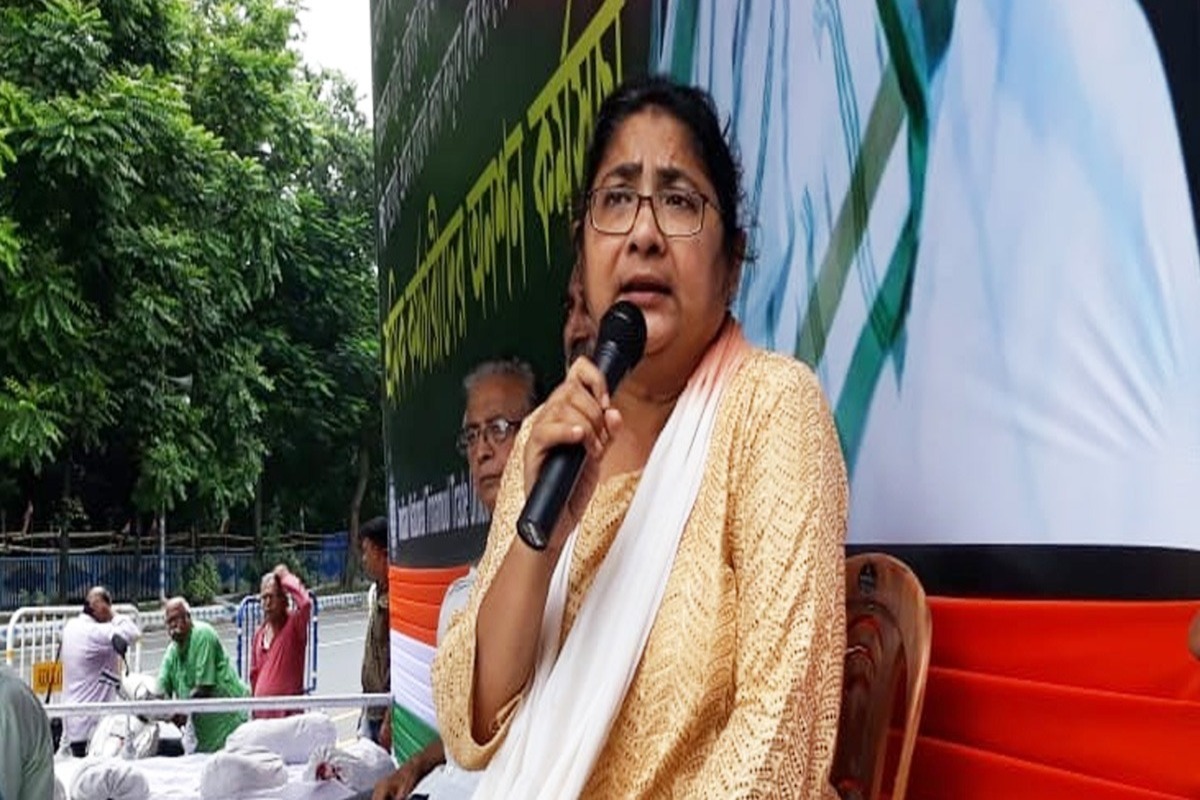It has been exactly one week since on a Thursday, July 27, Rajya Sabha Members of Parliament from Opposition political parties donned black outfits in protest against what they call a lack of Government initiative in addressing the serious issue of Manipur which is in the grips of a massive ethnic conflict since May 3. Yet, according to All India Trinamool Congress (AITC) leaders, there has been no progress and the political party’s Rajya Sabha MPS are releasing impassioned pleas over various mediums including the audio-visual method of videotape to the Prime Minister to discuss the issue in the Upper House. Among those to have taken up the issue was Dola Sen, the fiery and vociferous AITC Rajya Sabha MP whose video explaining the significance of turning up in Parliament wearing black had not just done the rounds a week ago but is once again back with a bang.
“Nothing has changed since the past week and the situation in Manipur is cause for concern,” Dola Sen told The Statesman in an interview. Dola is one of West Bengal chief minister and AITC chief Mamata Banerjee’s closest confidantes and she has been sent by Didi three times consecutively to represent her and the party in the Rajya Sabha. A trade union leader before she joined Mamata Banerjee’s movement during the agitations in Singur and Nandigram from 2006 to 2010, when Mamata lent her support squarely behind a group of farmers in different areas of the state against the takeover of their lands for the construction of factories and chemical hubs, Dola has been a dedicated and committed party worker. “She is one our most meticulous workers,” Didi is once understood to have said about Dola Sen.
Advertisement
While Sen has been one of the most articulate voices in the Upper House raising the pitch against the Centre on various topics, the “black protest” video sees her calmly explaining the circumstances which led to the “dark” form of protest. In the video which has resurfaced after doing the rounds last week is one in which she is seen (and heard) delineating the crisis facing the Northeastern state. “Manipur is in a terrible crisis,” she says, clad in a black churidaar kameez, “and we are wearing this color to register our protest against the government for not taking up the cause of the people of the Northeastern state. They are suffering and they don’t even have the freedom or money to buy medicine or even baby food.” Clearly, the relevance of the black protest has transcended the limits of time and space.











